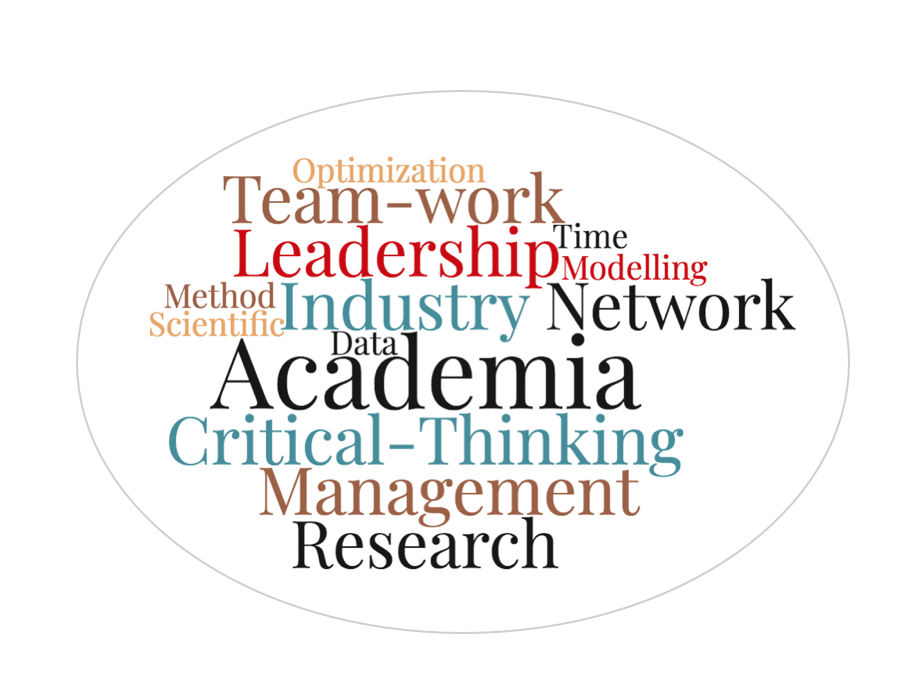Your academia experience is an asset in industry!
Back to Posts
Edna Matta-Camacho PhD, Research Associate, Carleton University
Recently, I had a unique opportunity and experience of transitioning from academia to industry. It was unexpectedly a positive and enriching change!
An important aspect of this transition was that the mission and vision of the company (“to advance in Drug Discovery and Development”) which aligned very well with why I am a scientist and my professional goals.
The process of transitioning started a year before finishing my postdoc. I learnt about a position in a company where my skills and professional expertise would be a good asset. I applied too late for that position, but the company kept my CV and contacted me a year later when a new position opened. Of course, I was interested, thus a phone-interview was scheduled. This was my first contact with a biotech company, and I was nervous. However, I prepared for the interview by looking at online resources. The article “How to Ace a Phone Interview” by Deborah L. Jacobs (Forbes-2014)(1) gave me useful ideas. I highly recommend reading the article.
I recorded myself on video practicing mock phone-interviews with potential questions. Those recordings helped me to adjust the volume and speed of my voice, practice potential answers. Practising reduced my anxiety. It is important to be able to identify your strengths and how these would be useful for a particular position in the company.
On the day of the call, I was nervous again, but once the phone interview started, I felt confident. I was able to improvise because I had clear ideas in my mind and the whole conversation felt natural. I believe it was the natural flow of the conversation which contributed in taking me to the next level of the selection process. In my case, preparation was a good tool, and so was looking for a very quiet, free of interruptions place for this call.
For my work presentation, I chose the part of my research projects that focused on the skills and expertise for the job description. There was a particular skill that the company was looking for in a candidate that I didn’t have, but I addressed this by showing that I had experience on a technique related to that particular skill. I prepared the presentation and Q&A to strictly adhere to the time frame required, and practiced in advance. During my presentations, I find it useful to lead listeners to questions which you can make yourself shine with the answers. There are of course questions where you might not know the answer, but just take a moment to pause and try to provide a related suggestion or possible answer without making things up. There are some online resources with useful tips on how to address this issue; for example, Lily Zhang provides some great advice in her article “4 ways to handle interview questions you don’t know how to answer” (the muse)(2).
The face-to-face interview turned out to be a friendly/informal conversation with my future colleagues. They wanted to know a little about me, why I wanted to make the transition, what I liked about the company, and how I thought I could contribute to the company’s mission. I was asked additional common interview questions such as those that aimed to discover how I dealt with deadline stress and difficult situations with colleagues at work. It is important that you have questions for them too, for example: how many weeks of vacation they have, personal/sick days, benefits, professional growth within the company. These questions are important for you to have a view from the environment inside the company. Remember, job interviews are a two-sided process.
After going through this recruitment process and working for this company, I realized that we, PhDs, have numerous experiences and skills which are valuable for industry settings. During a PhD we are trained to use critical thinking, work in teams, manage projects, analyze data and be the leaders of our own research projects. We just need to know how to translate these skills into industry language. There are many resources already out there with tips to help you how to customize your CV. I recently came across a useful career brief in Nature, “How to transition from academia to industry”(3).
Don’t be afraid to reach out for help, increase your network, develop your leadership, we have gone through a lot during our PhDs, don’t lose your enthusiasm!
References
1) https://www.forbes.com/sites/deborahljacobs/2014/05/27/how-to-ace-a-phone-interview/#5e388e9a2617
2) https://www.themuse.com/advice/4-ways-to-handle-interview-questions-you-dont-know-how-to-answer